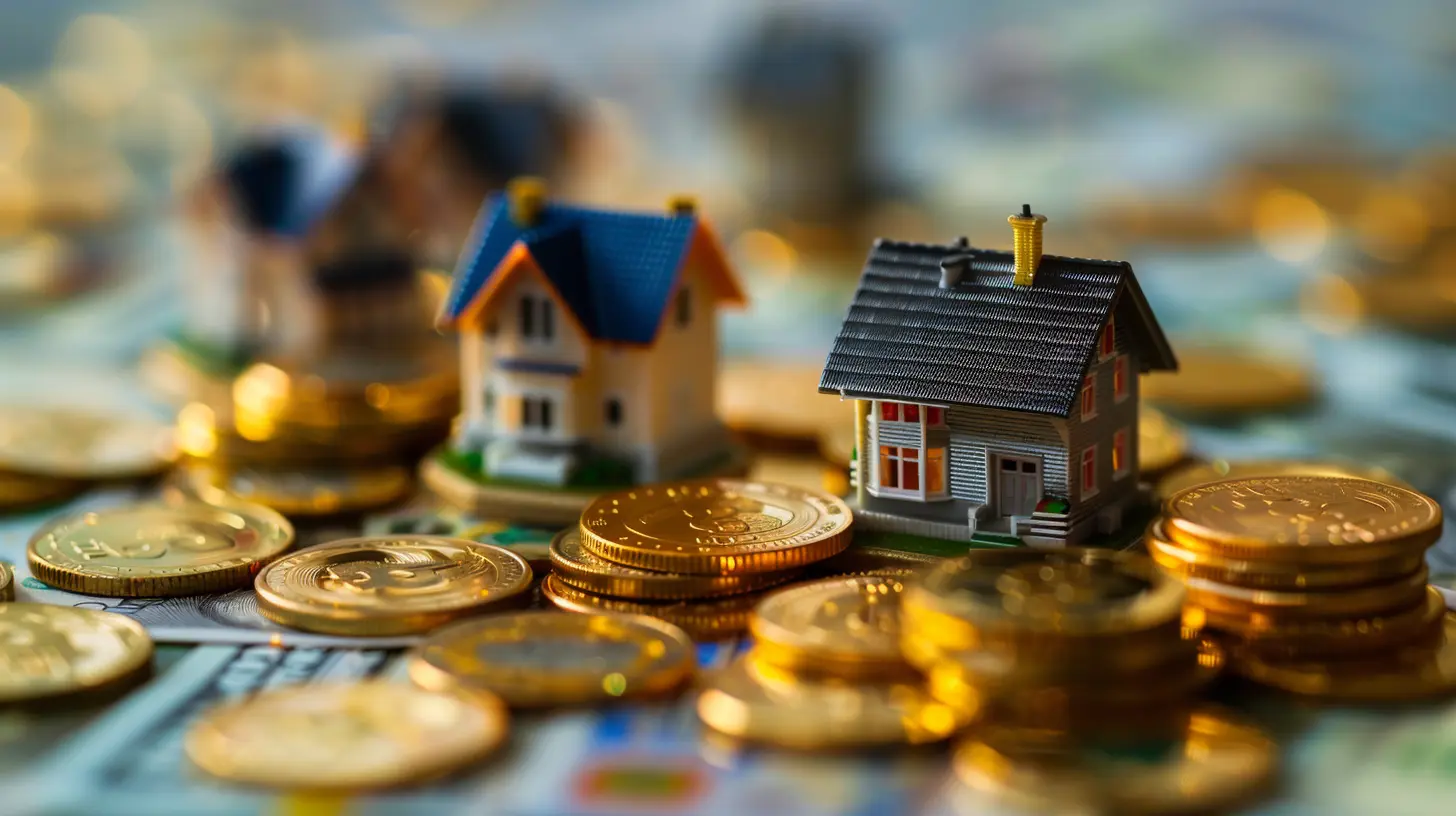How Public Transit Projects Can Affect Your Property Taxes
2 August 2025
Public transit is a game-changer for cities. It reduces traffic congestion, lowers carbon emissions, and makes commuting easier. But have you ever wondered how these massive infrastructure projects impact property taxes? If you're a homeowner, investor, or potential buyer, understanding this link can help you make smarter financial decisions.

The Connection Between Public Transit and Property Taxes
When a city announces a new transit project—like a subway extension, light rail, or even improved bus routes—it often comes with excitement and concerns. One of the biggest concerns for property owners is how it will affect their taxes.The Domino Effect of Public Transit Investments
Imagine tossing a pebble into a pond. The ripples spread outward in all directions. Public transit projects operate in a similar way.1. Improved Accessibility – A new transit hub makes commuting easier, attracting more residents and businesses to the area.
2. Higher Property Demand – As more people want to live near transit lines, property values go up.
3. Rising Assessments – Since property taxes are based on assessed home values, an increase in demand means higher assessments.
4. Increased Property Taxes – With rising assessments, homeowners often see higher tax bills.
But that’s just the start. Let’s break it down further.

How Public Transit Impacts Property Values
1. Increased Home Values
Transit accessibility is a hot commodity. People love the idea of living near a train station or a reliable bus route. Why? Because it saves them time and money.If your home is close to a new transit stop, its value could rise significantly. More buyers and renters will be interested in your property, meaning prices (and subsequently, property taxes) could go up.
Real-Life Example: In Washington, D.C., homes within a half-mile of Metro stations are valued 7% to 9% higher than those farther away. That increase in value results in—you guessed it—higher property taxes.
2. New Development and Gentrification
Public transit projects often bring new businesses, restaurants, and housing developments. This can lead to gentrification—where an area becomes more desirable, pushing up home prices and rents.While some homeowners benefit from increased equity, others might struggle with rising property taxes, especially if they’re on a fixed income.
3. Higher Demand for Rentals
Investors love transit-accessible properties. They can charge higher rents because tenants are willing to pay more for convenience. But with higher rents come higher property values—and higher tax assessments.It’s great if you’re an investor, but if you’re a long-term homeowner, you might not be thrilled about a bigger tax bill every year.

How Cities Use Public Transit to Justify Tax Hikes
Cities often argue that public transit projects improve overall infrastructure and make living conditions better. And while that’s true, someone has to pay for those shiny new trains and bus lanes.1. Special Tax Districts
Ever heard of a "special assessment district"? Some cities create these zones where property owners near a new transit project pay extra taxes to help fund it.For example, when New York City expanded the subway in Hudson Yards, property owners in nearby areas paid additional fees to help cover the costs.
2. Increased Property Assessments
Local governments reassess property values every few years. If public transit improvements drive up values, the city will naturally adjust property assessments, leading to higher tax bills.It’s a classic case of "your home is worth more, so you need to pay more."
3. Transit-Specific Taxes
Some cities introduce transit taxes, which homeowners indirectly absorb. These taxes may not be tacked onto property tax bills specifically, but they can increase the overall cost of living—making everything from groceries to services more expensive.
Can Public Transit Ever LOWER Property Taxes?
It’s not all bad news! In some cases, public transit can stabilize or even reduce property taxes.1. More Efficient Use of City Funds
If a city can reduce traffic congestion and wear-and-tear on roads through transit investment, it might not need to spend as much on fixing highways and bridges. That could keep tax increases in check.2. Economic Growth Offsetting Tax Burden
When businesses move into transit-friendly areas, they generate tax revenue, which can help offset property tax increases. More businesses mean more commercial tax revenue, which can take some pressure off residential property owners.3. Affordable Housing Initiatives
In some cases, city governments introduce tax incentives to encourage affordable housing around transit hubs, which could help keep overall tax rates balanced. If policies are structured well, they can prevent taxes from skyrocketing too fast.What Homeowners Can Do About Rising Property Taxes
If you’re concerned about your property taxes shooting up due to a new transit project, here are some steps you can take:1. Challenge Your Property Assessment
If you think your home’s new assessed value is too high, you can appeal it. Many homeowners successfully reduce their tax bills by arguing that their home’s value was overestimated.2. Look Into Tax Relief Programs
Many cities offer tax relief programs for seniors, veterans, and low-income homeowners. If your taxes are going up due to transit projects, check if you qualify for any programs.3. Consider Renting a Portion of Your Home
If the market is hot because of transit improvements, you could rent out part of your home (like a basement suite) to help cover the extra property taxes.4. Stay Involved in Local Politics
Public hearings and city council meetings discuss tax increases all the time. Staying engaged can help you advocate for fair policies that don’t burden homeowners too much.
Final Thoughts
Public transit can be a double-edged sword for homeowners. On one hand, it boosts property values and improves city infrastructure. On the other hand, it can lead to higher property taxes that catch homeowners off guard.If your city is planning a new transit project, it’s worth paying attention to how it will affect your property taxes. Knowledge is power—understanding these changes can help you make better financial choices, whether you're buying, selling, or staying put.
all images in this post were generated using AI tools
Category:
Property Tax GuideAuthor:

Vincent Clayton
Discussion
rate this article
1 comments
Kaitlyn Martinez
Public transit projects can significantly influence property values and taxes, often leading to increased assessments, yet they also enhance accessibility and community appeal.
August 19, 2025 at 11:47 AM

Vincent Clayton
Absolutely, public transit projects can raise property values and taxes while improving accessibility and community attractiveness. It's a complex balance that benefits the overall community.


